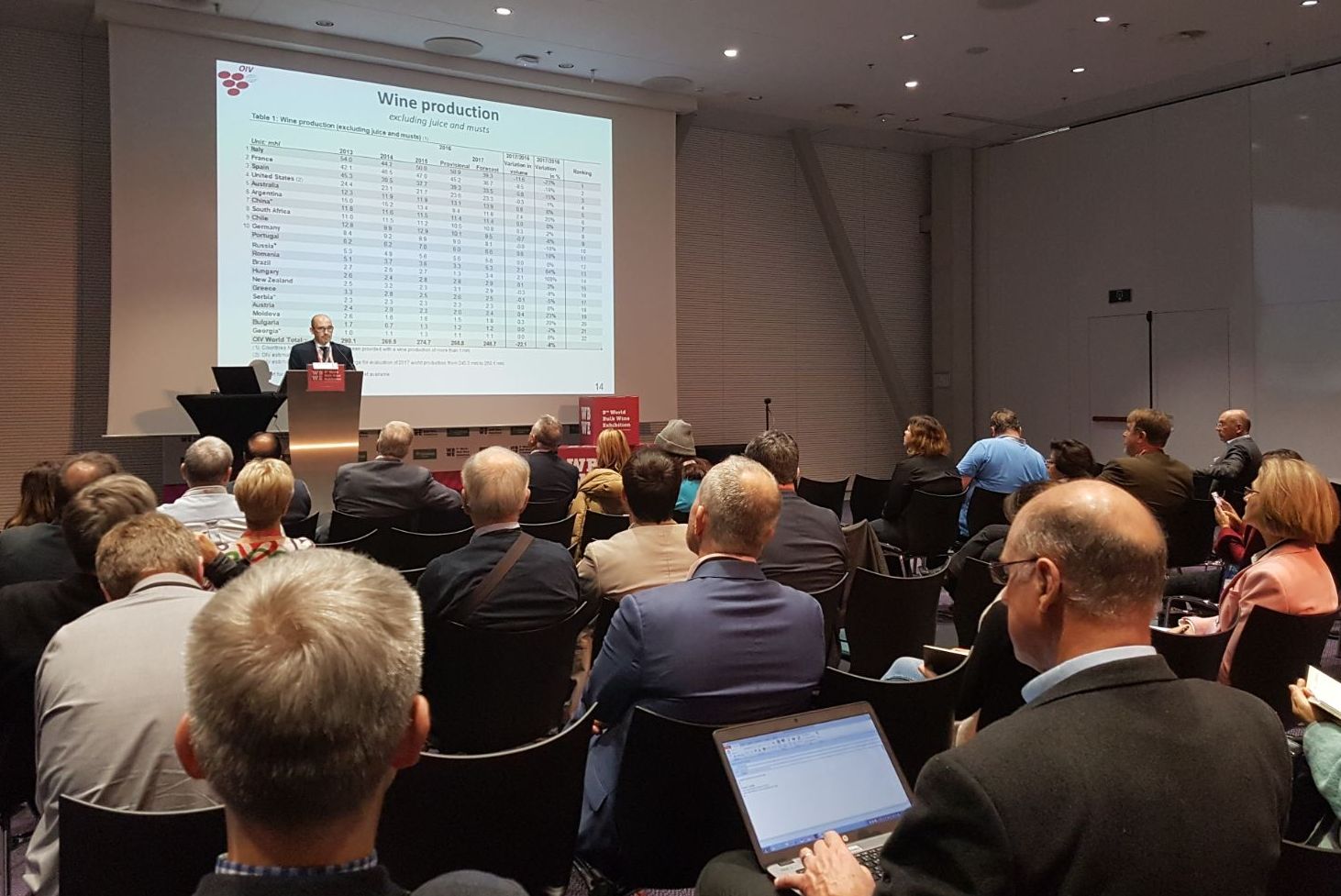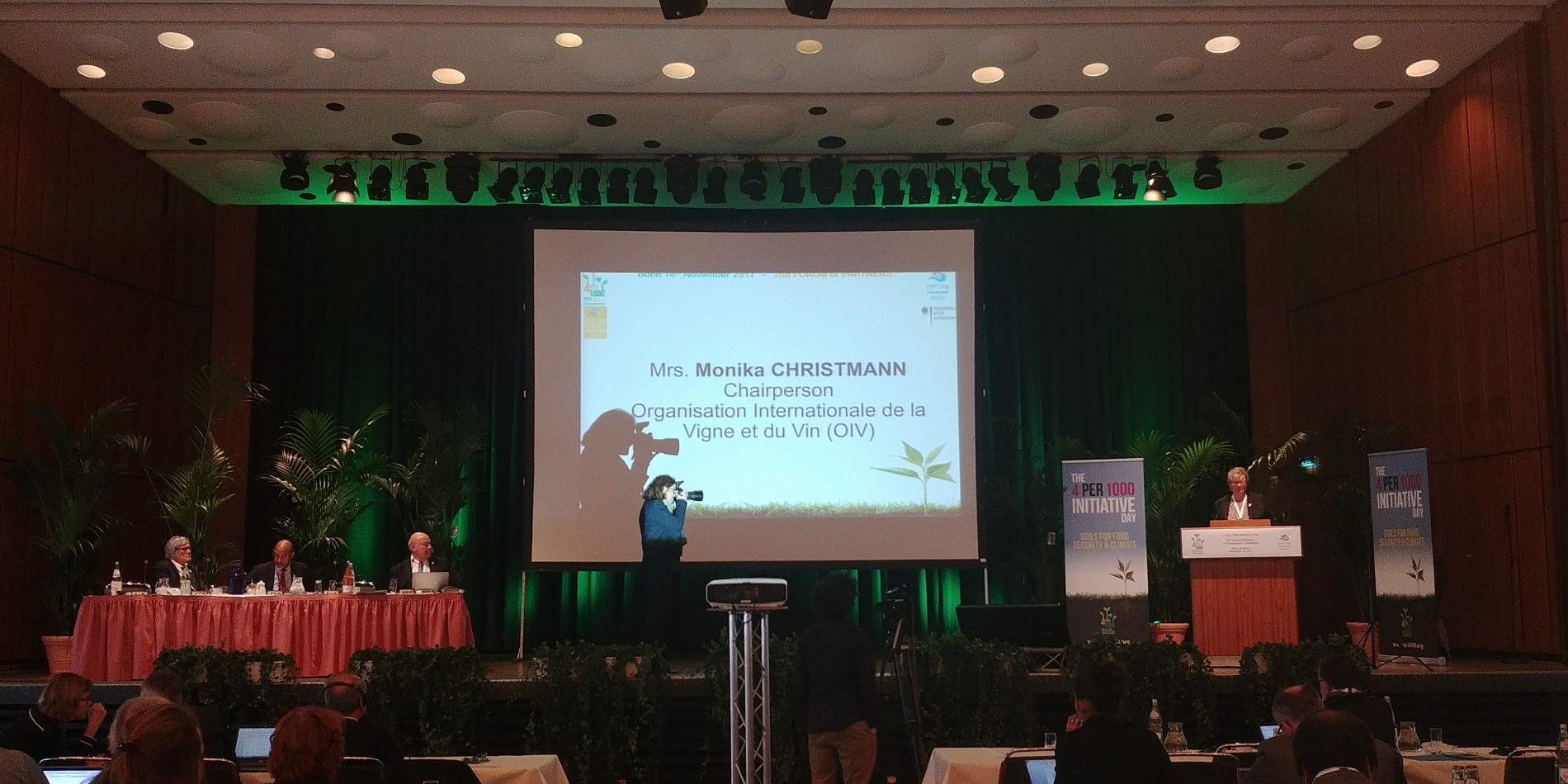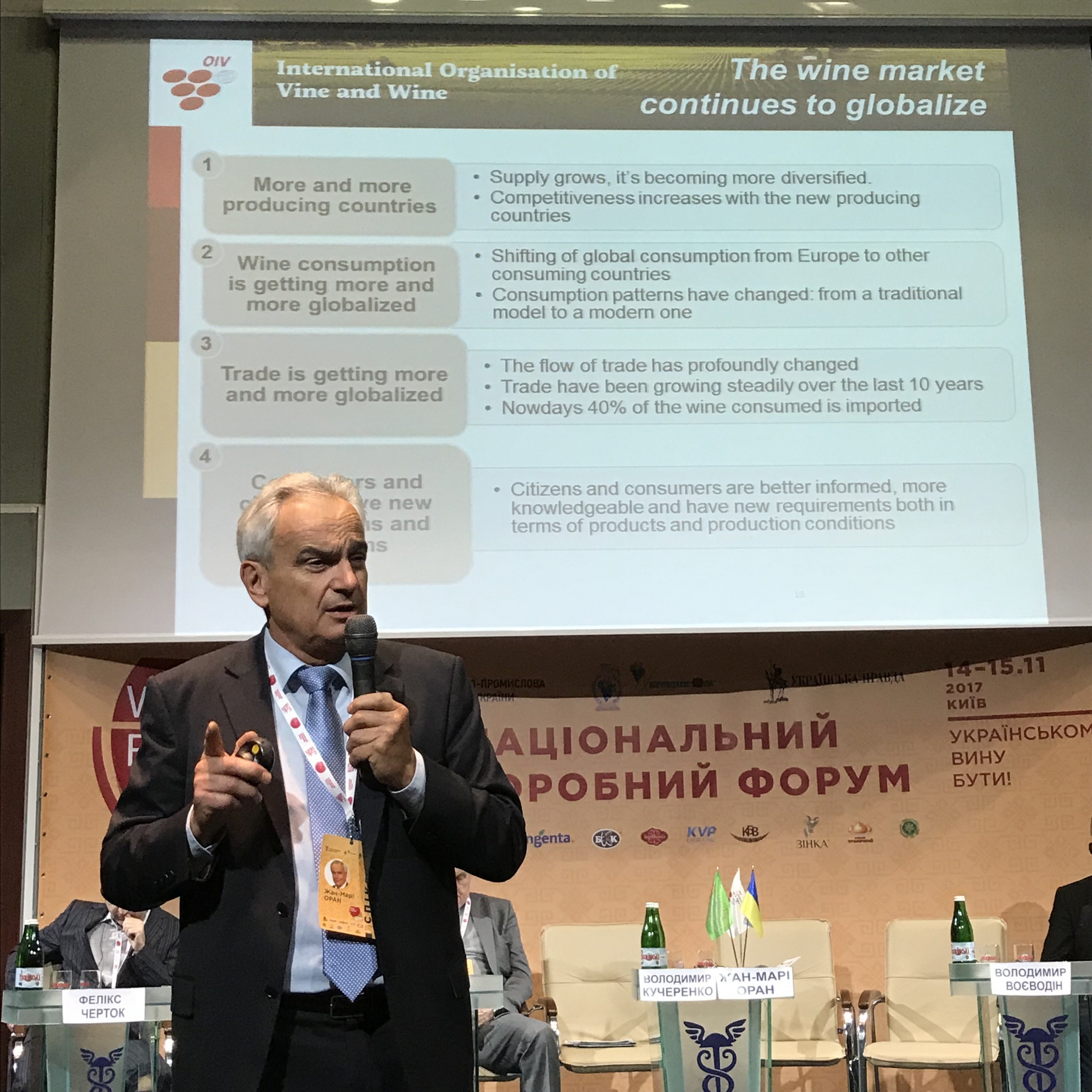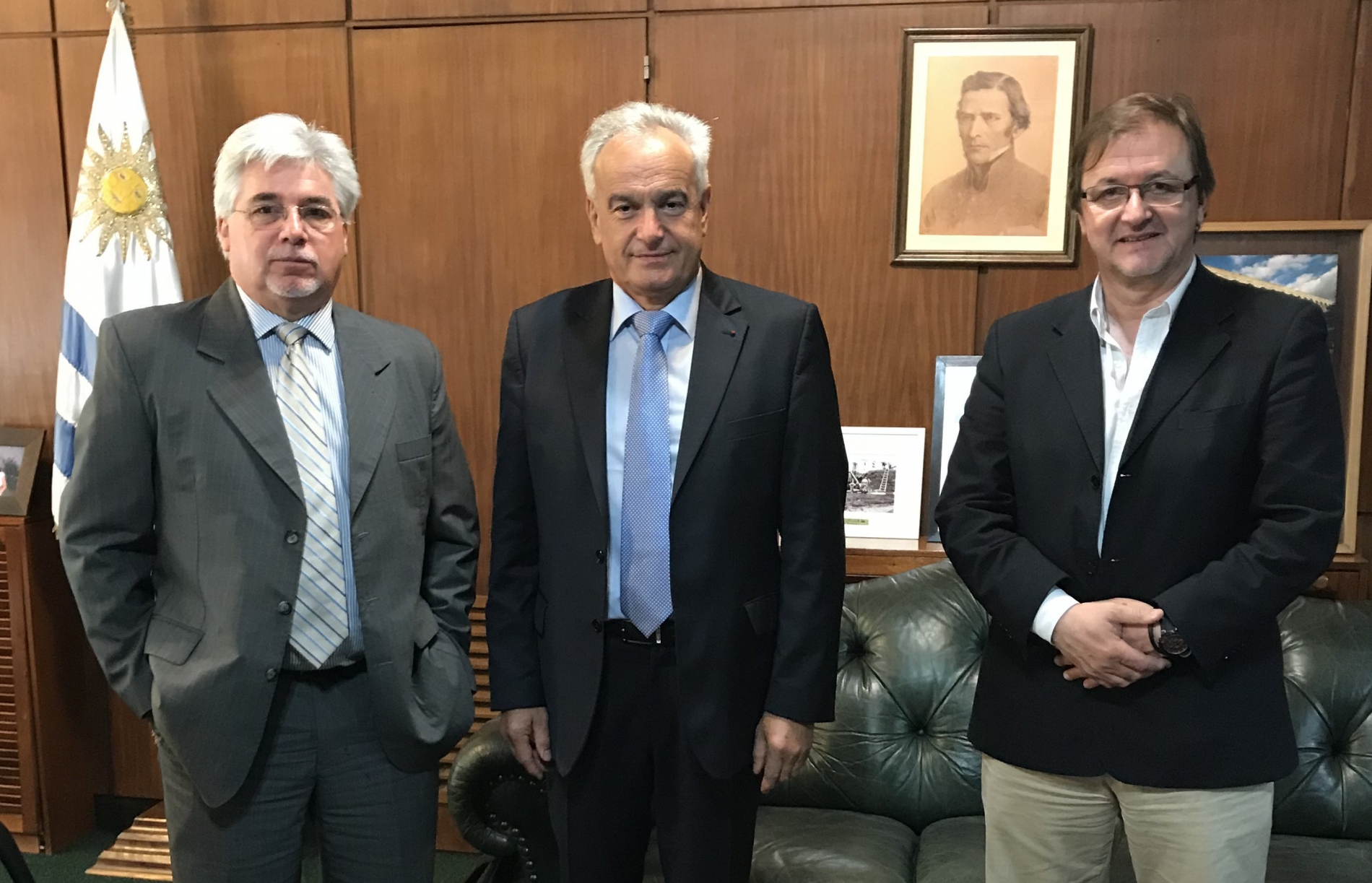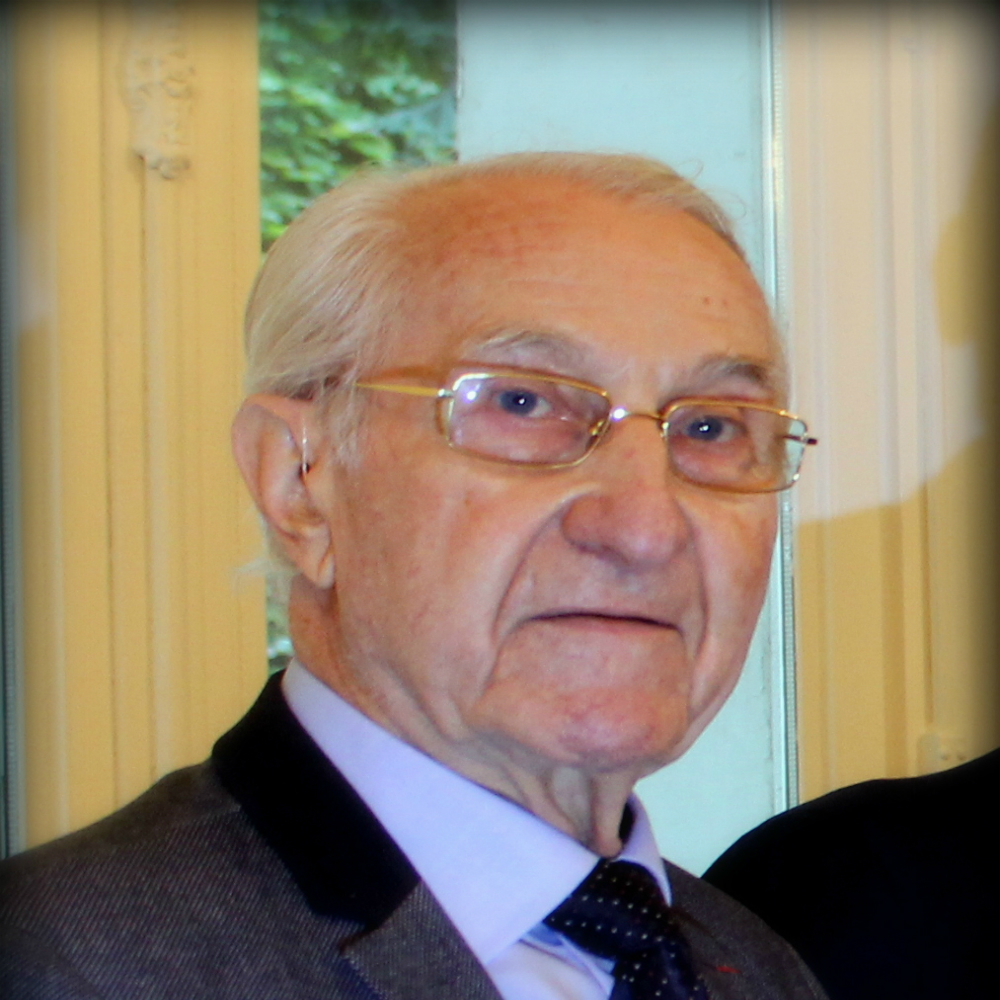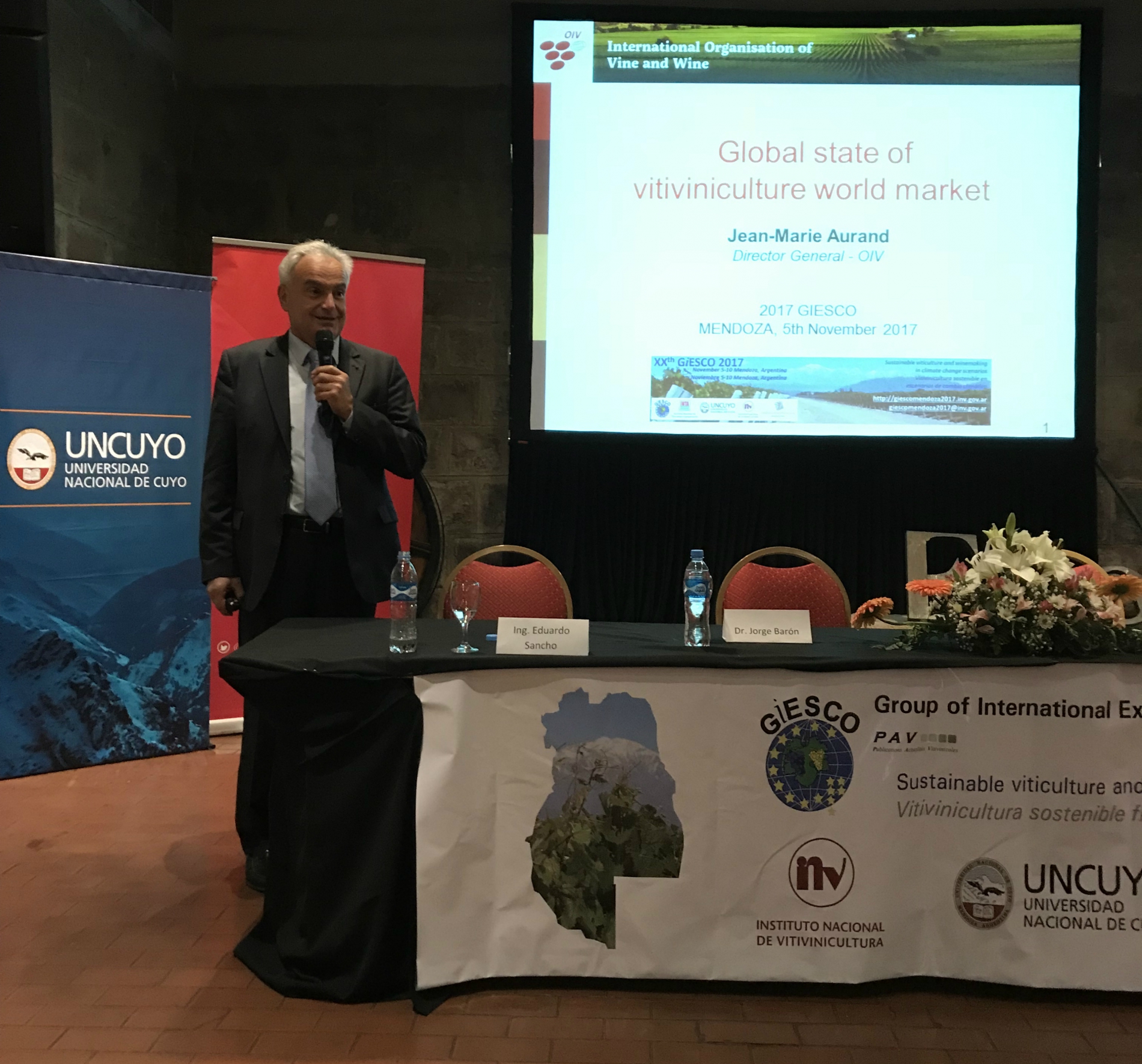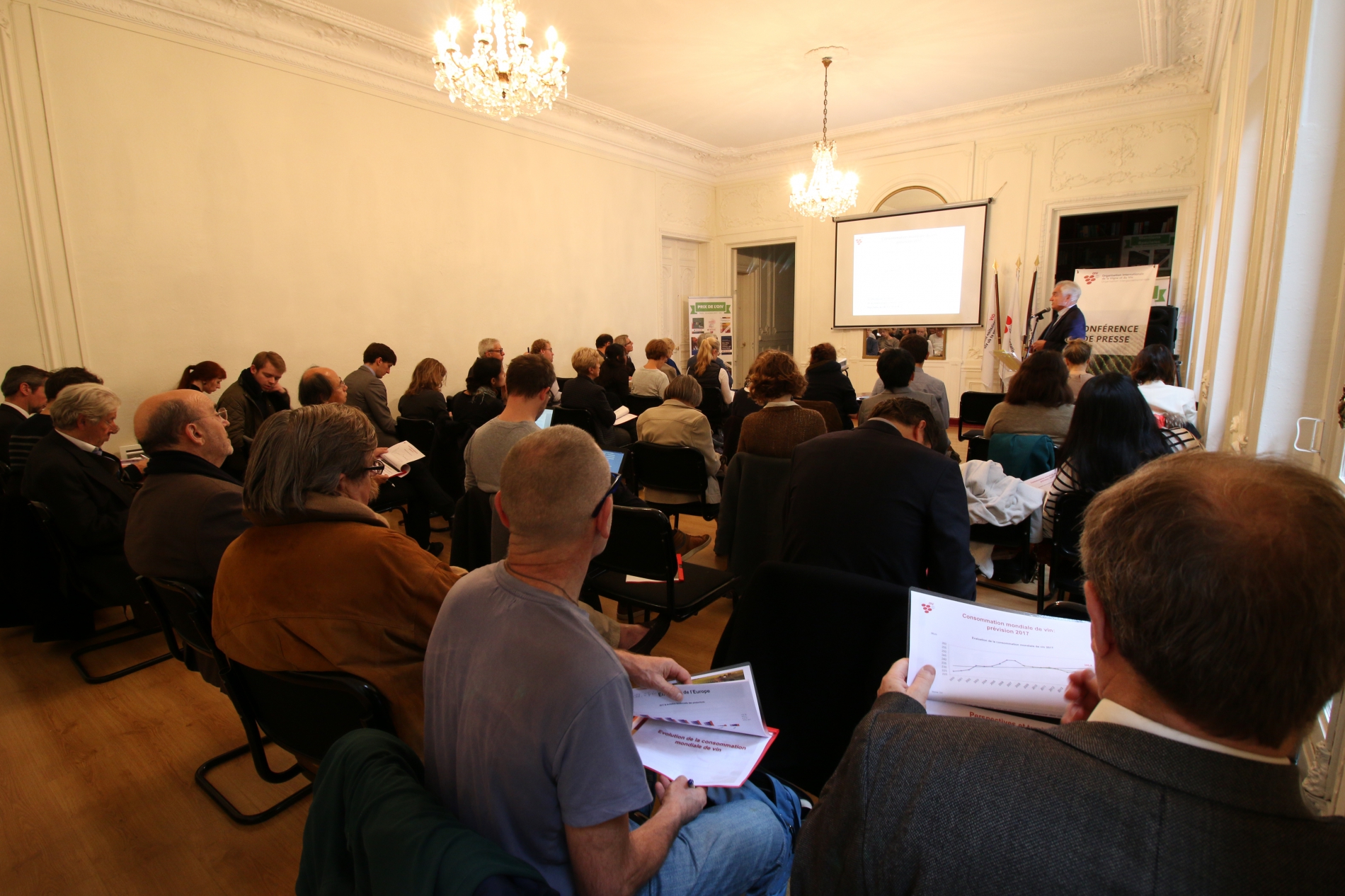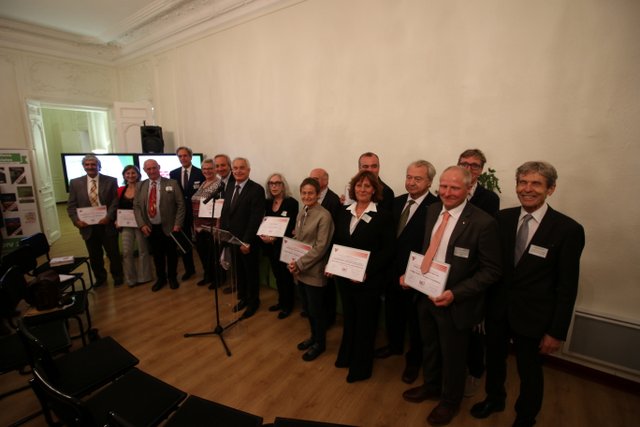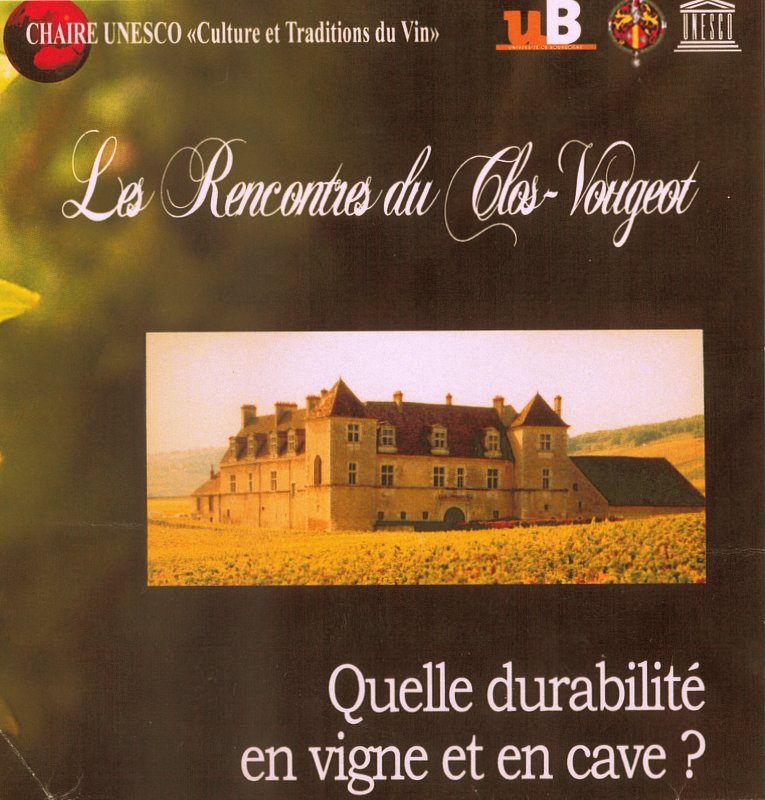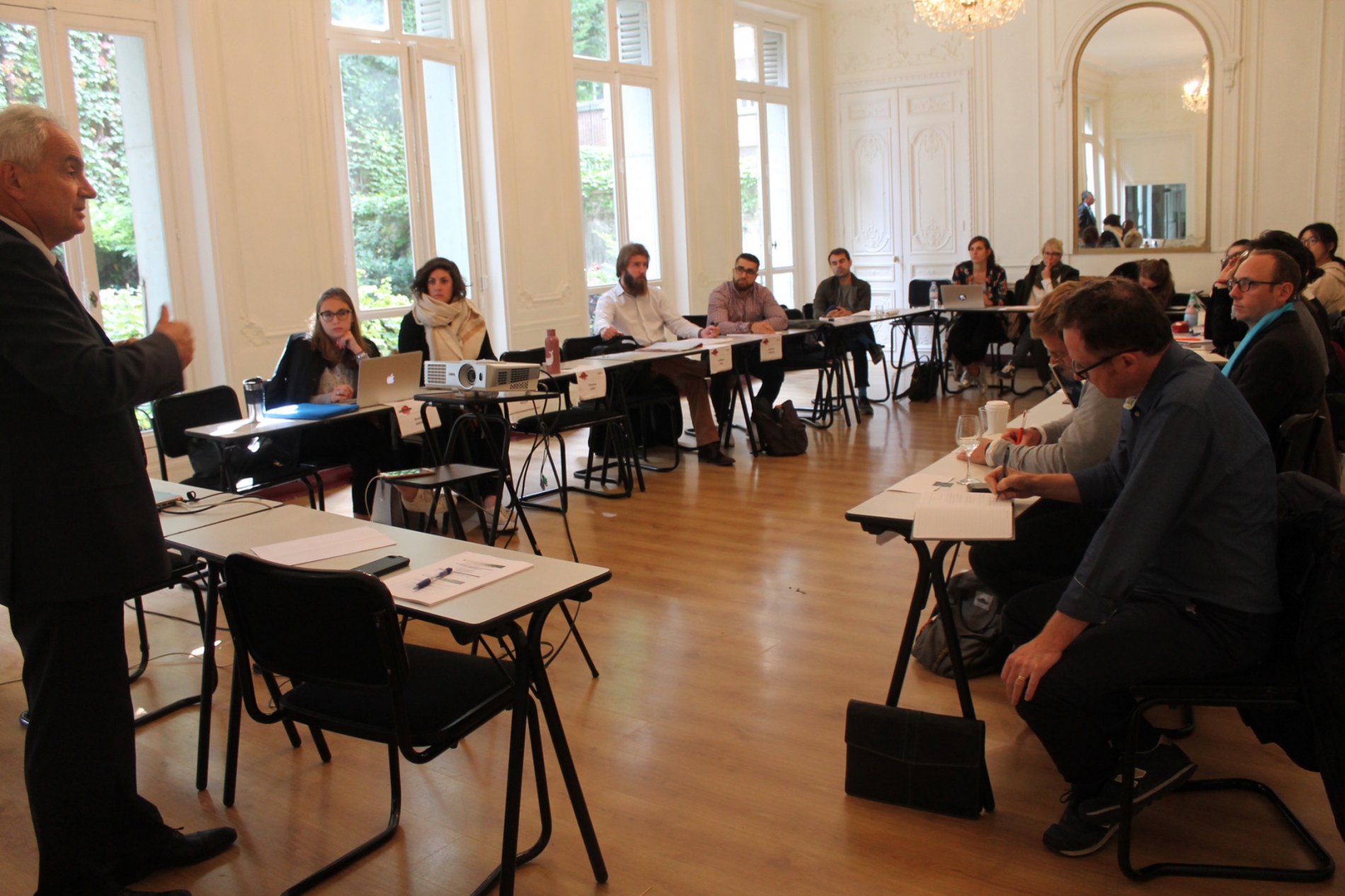20 Nov 2017
On this occasion, he recalled the modification made in 2017 to the Harmonised System (HS) Nomenclature of the World Customs Organization with the creation, at the request of the OIV, of the new 2204.22 subheading regarding wines in containers holding more than 2 litres but not more than 10 litres.The HS is used by over 200 countries, as well as economic or customs unions, to draw up national customs tariffs and establish international trade statistics for the purposes of classifying goods traded around the globe. Before 2017, the HS only comprised two subheadings: 2204.21, which identified wine in containers of 2 litres or less, and 2204.29, which identified wine in containers of more than 2 litres – the latter being generally defined as bulk wine. Operators are therefore looking forward to the first statistics, which will make it possible to distinguish wines intended to be packaged in containers of under 2 litres from those sold in volumes of between 2 and 10 litres, and those sold in volumes of over 10 litres.
20 Nov 2017
The 4 per 1000 initiative aims to promote sustainable soil management in order to take action for food safety and the climate. The event attracts a large number of personalities from all arenas: government representatives, intergovernmental and non-governmental organisations, and research institutions. During the opening session, Monika Christmann gave a presentation on the OIV, including its involvement in issues related to environmental protection and sustainability.Soils are a place of considerable carbon stocks, yet often overlooked. An increase of 0.4% per year of soil carbon stocks, thanks to adapted cultivation practices, could absorb up to 80% of total greenhouse-gas emissions.The aim of the 4 per 1000 initiative is to encourage approaches that seek to promote carbon sequestration in soils. The initiative, launched by the French government during COP21 in 2015, has seen strong expansion since. Today the consortium has 21 countries and 11 intergovernmental organisations as members – including the OIV – while 19 countries and over 100 non-governmental organisations and research institutions take part as forum members.
19 Nov 2017
This forum brought together over 250 participants, including the major Ukrainian vitivinicultural companies. Discussions focused on the state of the vitivinicultural sector and its prospects surrounding the key issues: vineyard development, modernisation of companies, standardisation and the evolution of the regulatory framework in accordance with international standards.The OIV Director General, after having praised the quality of discussions during this forum, gave a presentation on the OIV and its missions, highlighting the main developments of the vitivinicultural sector at the global scale and the major issues for the future. He particularly insisted on the importance of the standardisation of products, according to international standards, to ensure their quality and meet consumer expectations on both the internal and export markets.The forum was extended by the Ukrainian Wine Festival, during which the wines and brandies of the major companies in the sector were presented.With a vineyard surface area of 45 000 hectares, Ukraine produces almost 1 million hectolitres of wines and brandies. The country has almost 150 such companies. During Jean-Marie Aurand's visit, he also had a meeting with the First Vice Prime Minister of Ukraine, Stepan Kubiv, in order to examine the prospects of the Ukraine returning to the OIV. With the First Vice Prime Minister of Ukraine, Stepan KubivWith the Ukrainian authorities
14 Nov 2017
This will take place in Punta del Este on 19-23 November 2018, on the general theme of "Shaping the Future: Production and Market Challenges".The Uruguayan Minister for Agriculture, Mr Tabaré Aguerre, confirmed his country's full commitment to the success of this event.Jean-Marie Aurand, after paying a visit to the location where the Congress is set to take place, expressed his great satisfaction with the way in which the various actors involved are mobilising more than a year in advance, and especially with the high level of involvement of the INAVI (National Institute of Vitiviniculture).Tabaré Aguerre, Jean-Marie Aurand and José Lez Secchi
12 Nov 2017
One month ago, at the OIV headquarters, he was celebrating the 30th anniversary of the OIV Master's in Wine Management that he founded, surrounded by two generations of former students.A graduate of the Paris Law Faculty and the research and development centre of the Department of Fraud Control, he began his career as General Counsel for the National Department of Control for Wines and Spirits (1964-1970), then as head of the bureau of wines and beverages at the Ministry of Agriculture (1970-1981).Inspector General for Fraud Control, he was appointed by France as Commissioner-General to organise the OIV general assemblies in Paris in 1975 and 1982, for which he was the spokesperson for issues relating to designations of origin and wine quality. From 1982 to 1985, he presided the OIV "Regulation and Quality Control" Expert Group.His legal competencies and knowledge of the vitivinicultural sector paved the way to his presidency of the "Wine" Group (1979) and "Spirituous Beverages" Group (1984) at the Council of Ministers of the European Union, his participation in the revision of the Paris Convention with the WIPO, his vice-presidency of the FAO Wine Group (1983) and his leadership of the French delegation to the Codex Alimentarius Commission.After becoming Deputy Director of Consumption and Fraud Control, in 1985 he was elected OIV Director General and occupied the post until 1996, developing the activities of the Organisation, which grew from 33 Member States to 46 during this period.After becoming Deputy Director of Consumption and Fraud Control, in 1985 he was elected OIV Director General and occupied the post until 1996, developing the activities of the Organisation, which grew from 33 Member States to 46 during this periodPassionate about history and wine law, and proud of his Burgundy origins, he created the first wine law course in 1971 and loved sharing his passion with students in oenology, economy, agronomy or law at numerous French universities. This is how he came to be at the heart of the initiative to create the International Wine Law Association (IWLA) in 1987 and the International University Association of Wine (AUIV), which took charge of the OIV Master's in Wine Management.For 20 years, he continued to share his skills as part of the IWLA, as part of the Académie Amorim over which he presided and with the UNESCO Chair "Culture and Traditions of Wine" at the University of Burgundy.A great diplomat, he leaves us with the memory of a passionate and inventive OIV Director dedicated to the service of the world of vine and wine that he knew so well.The OIV pays tribute to his memory and would like to extend its deepest sympathies to his family.
08 Nov 2017
More than 250 experts from around the world (over 20 countries represented) took part in the different sessions of this conference, which was dedicated in particular to the sustainability of viticulture in the different scenarios of climate change.At the opening of the forum placed under the patronage of the OIV, the Vice-President of the Organisation, Claudia Quini, gave a presentation of Argentine vitiviniculture on behalf of the INV (Argentine National Vitiviniculture Institute).The OIV Director General, Jean-Marie Aurand, gave a panorama of the vitivinicultural sector at the global level, as well as the major trends and main issues, highlighting the role of the OIV in this context.The GiESCO Association brings together experts in vitivinicultural systems. Originally focused on vineyard training systems and ecophysiology, the work of this group of experts has expanded to include the key issues of fundamental and applied viticulture.
23 Oct 2017
During the press conference held at the headquarters of the International Organisation of Vine and Wine, the Director General of the OIV, Jean-Marie Aurand, presented initial information about world wine production in 2017.
- Very low production in Europe: production levels were at a historic low in Italy (39.3 mhl), France (36.7 mhl) and Spain (33.5 mhl).
- An even higher level of production was recorded in the United States (23.3 mhl).
- South Africa (10.8 mhl) maintained its level of production.
- In South America, production increased compared with the low levels of 2016, particularly in Argentina (11.8 mhl) and Brazil (3.4 mhl). In Chile (9.5 mhl), vinified production remained low.
- Australian production (13.9 mhl) grew and New Zealand production (2.9 mhl) maintained a very good level despite a slight decline
16 Oct 2017
Present were multiple members of the Diplomatic body of the OIV including the President of the OIV Mrs. Monika Christmann, the Director General of the OIV Mr. Jean-Marie Aurand, the President of the OIV Awards Jury Mr. František Lipka, as well as the Scientific Secretary of the OIV Awards Mr. Jean-Luc Berger.They were joined by distinguished members of the world of wine at one of the key events in the OIV calendar including representatives from publishing houses, journalists, vitivinicultural professionals and OIV Experts…The growing success of this ‘Nobel Prize of vitivinicultural literature’ (Jean-Marie Aurand, Director General of the OIV) aims to offer current and diverse information on Vine and Wine to readers. This is spread across different subjects, technical and scientific (œnology and viticulture), economy and law, history, literature and fine arts, wine and health, wine and gastronomy, as well as the presentation of wines and the viticultural regions throughout the continents.The rigorous selection of all the works, by the specialised evaluators from around the world, allowed for the International Jury, presided by Mr. František Lipka, to make an impartial selection from 65 submissions from 19 countries. The prizes with 10 OIV Awards and 8 Special mentions represent original works of immense quality on the cutting edge of the latest technological advances and scientific discoveries.The quality and depth of the works in the 2017 OIV Awards are confirmation of the prestige of the OIV Awards and their standing in the vitivinicultural world. The works cover the entire vitivinicultural world including regions where vitivinicultural is not well known as well as countries that are not curently member states of the OIV.2017 AwardsOIV Awards 2017Special Mentions 2017
11 Oct 2017
Held over three days in the heart of the Burgundy vineyards, this event brings together different actors in the vitivinicultural world (academics, researchers, vine growers, merchants, etc.) to reflect on a particular theme. In 2017, this theme was sustainability in the vineyards and the winery, and several dozen participants took part over the three days, with foreign speakers being well represented.At the invitation of the Head of the UNESCO Chair, Jocelyne Pérard, the OIV Director General closed the conference. On this occasion, Jean-Marie Aurand presented the OIV's activities related to sustainability, carried out through a new holistic approach first implemented in 2015.It should be noted that the UNESCO Chair of the University of Burgundy made the application to include Burgundy vineyards on the World Heritage of Humanity list of natural and cultural sites, as viticultural sites. This recognition was granted in 2015.There are 15 or so sites around the world associated with viticulture that have achieved this recognition. They are an illustration of the human activity, through the mark they leave on the land and through the cultural traditions with which they are associated.
08 Oct 2017
After an introduction to the OIV and its activities by the different unit heads, they were welcomed by Director General Jean-Marie Aurand, who emphasised the distinctive character of this training programme and the opportunities it offers, thanks to the network of associated universities and companies.The specific nature of the course is designed to be mono-sectoral, multi-disciplinary, itinerant, international and experiential all at the same time; it also now has one of the most developed networks in the world of wine. Since 1987, almost 500 players and policy makers in the wine world have taken this training programme.Before this year's class left the OIV headquarters, Jean-Marie Aurand stressed the course's international dimension, which is expressed through a curriculum that every year leads students to discover over 20 key countries on the wine planet, spread over the 5 continents.On this 30th academic year, the OIV MSc in Wine Management will celebrate its 30th anniversary on Friday 13 October at the OIV headquarters with a special conference and tasting day.
